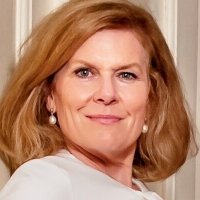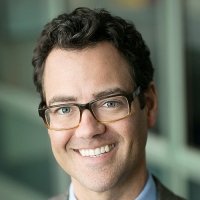US Government
Commemorating Wilson in an Age of Racial Reckoning
"To commemorate" means "to remember together." How should we collectively remember a past that has left so many different legacies for different people? How should we remember a figure like Woodrow Wilson, whose legacy is both internally inconsistent and publicly contested? Can we find a way to explore and discuss the good, the bad, and the ugly in our past when we don't always agree on the meaning of those terms? Must we try? Join representatives from the Woodrow Wilson Presidential Library in Staunton, Virginia, the President Wilson House in Washington, DC, and the Woodrow Wilson International Center for Scholars - the official presidential memorial to Wilson - as they discuss how their organizations are wrestling with these questions in an age of reckoning.
Overview
"To commemorate" means "to remember together." How should we collectively remember a past that has left so many different legacies for different people? How should we remember a figure like Woodrow Wilson, whose legacy is both internally inconsistent and publicly contested? Can we find a way to explore and discuss the good, the bad, and the ugly in our past when we don't always agree on the meaning of those terms? Must we try? Representatives from the Woodrow Wilson Presidential Library in Staunton, Virginia, the President Wilson House in Washington, DC, and the Wilson Center—the official presidential memorial to Wilson—joined to discuss how their organizations are wrestling with these questions in an age of reckoning.
Consistent with its mission as a national memorial to the 28th U.S. president, the Wilson Center’s History and Public Policy Program is launching “Woodrow Wilson - Then and Now," a new series of scholarly conversations exploring the significant and complicated legacies of the man and his presidency for our own day. Moderated by Trygve Throntveit, Global Fellow for History and Public Policy, the series will be a platform for an inclusive and critical discussion of Wilson’s biography, his White House tenure, and his longterm impact on U.S. foreign and domestic politics.
Speaker Quotes
Elizabeth A. Karcher
“[Edith Wilson’s] letters of bequeathment refer to it as being a shrine to Woodrow Wilson, and we struggle with that because we’re not really a shrine any longer. We talk about it as being a place where we can talk freely about his legacy and the legacy that he’s left. And legacy I think is a much richer word. It describes both things that are positive and negative, the consequences and the results of some of the legislation in the parts of his administration that today we’re realizing what that legacy is actually leaving.” [14:21-14:56]
“In today’s world, what we focus on is Wilson’s legacy as president and his presidential years, but other things as well. We talk about the full story of the people who lived in this house, who worked in this house, we look at the architecture of the house and… the style of the architecture of the time. We do a tour called “Upstairs Downstairs” where we describe the life of Edith Wilson in one day, and then the people who worked in the house around her to support the lifestyle in this house. And the subtle nuances that you find in a historic house like this that really describe what the “upstairs downstairs” means.” [15:53-16:33]
“Our mission, as part of the National Trust for Historic Preservation, is to preserve and store the house, the collections, the landscapes, and its full dynamic history, and use it to provide forward thinking and inclusive discussions, programs, and community activities that are relevant to today’s social context. We really look to have debates, dialogue, [and] discourse, about what, in many ways, what happened a hundred years ago and how those same things resonate today. Whether it’s talk related to issues Wilson himself faced: women’s issues, racial issues, and of course, international conflict. So these are our topics that we try to bring to life for our tours and for our guests.” [17:05-17:53]
Robin von Seldeneck
“I think it’s important to state, we know and understand Woodrow Wilson is neither fondly remembered nor well understood by many Americans. And the reality is that President Wilson is a polarizing historical figure, but we are committed to discussing his full story. So while we celebrate the domestic legislation that Wilson signed into law, and the new directions he charted in foreign policy during the first world war that has shaped the politics and the diplomacy of the United States throughout the twentieth century and beyond, we also detail his deplorable views on race and segregation, and its lasting impact on the progress of social justice.” [11:39-12:18]
“I think one of the things that we deal with constantly, as being museum professionals, is that we have to continue to be objective. And so often, there’s so much emotion about these very topics, and you have to balance that emotional piece of that with the objective piece of what our job is.” [33:46-34:07]
“I think so often we want to glorify all of our leaders and see only them at their best ideals. But to me, when we look and study a human being, whether they’re President of the United States or mayor of a small city, it doesn’t matter, we’re looking at a person, their positives but also those flaws, and what makes them, and what can we learn from them is the most important thing for me. I think so often it’s easy for us to sit in our glass houses and throw those walks when we need to maybe be reflecting within, and that’s where I want to see us go [in] our organization.” [55:52-56:32]
Trygve Throntveit
“I think it is essential that an institution chartered by Congress to promote Wilson’s best ideals do just that: promote his best ideals and do a much better job of it than he did himself. I can’t think of a time when it was more important to foster courageous, but tolerant and constructive sharing of stories and experiences, of hopes and fears, of assessments and ideas across deep differences, than it is today.” [25:56-26:21]
“For all of my concerns about some of the contemporary literature on Wilson and his troubling legacy, it is undeniable that that legacy is troubling. And if our Center and our exhibition in any way appear to be sweeping any of those legacies under the rug, we are doing a disservice to ourselves and the American people and everyone who visits the exhibition. We need to make it clear that at least we, as an organization, can confront these types of complexities and can welcome the opinions and the reactions and the suggestions and the creative constructive ideas and solutions of people outside of our think tank. Outside of our organization. Outside of our familiar sphere of experts.” [28:41-29:30]
Speakers
Moderator
Hosted By

History and Public Policy Program
The History and Public Policy Program makes public the primary source record of 20th and 21st century international history from repositories around the world, facilitates scholarship based on those records, and uses these materials to provide context for classroom, public, and policy debates on global affairs. Read more
Thank you for your interest in this event. Please send any feedback or questions to our Events staff.














